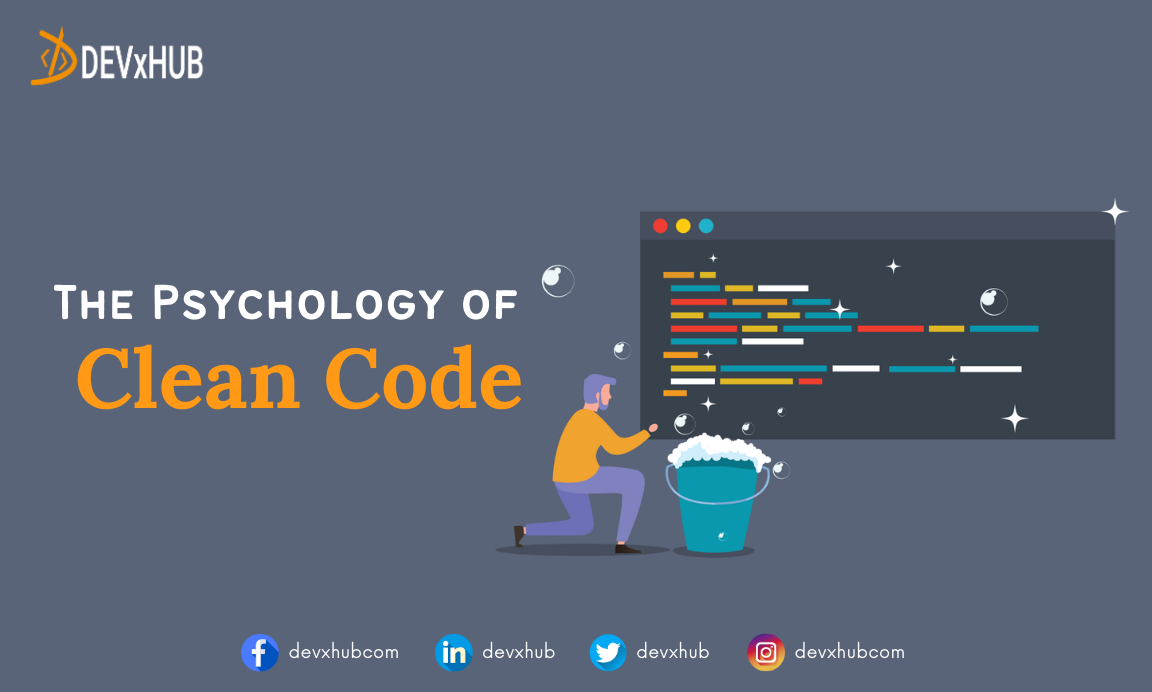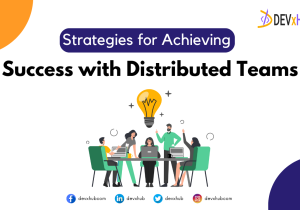Blog - Beyond Syntax: The Psychology of Clean Code
Introduction:
In the intricate tapestry of software development, clean code stands as a testament to the symbiotic relationship between the logical precision demanded by machines and the intricate nuances of the human psyche. Far beyond the realm of syntax, clean code is an embodiment of the psychology underlying programming practices. This exploration transcends the mere technicalities, delving into the depths of the developer’s mind to unravel the intricate interplay of cognitive science and code craftsmanship.
The Cognitive Symphony of Code:
Clean code is, at its essence, a quest to minimize the cognitive load imposed on developers. As we unravel the intricacies of cognitive science, we discover how the organization of code, the choice of abstractions, and the clarity of expression contribute to creating a symphony that the human mind can effortlessly comprehend. We explore how clean code becomes a canvas where developers can paint their logic without the distortion of cognitive dissonance.
The Artistry of Readability:
The psychology of clean code delves into the aesthetic dimensions of programming. Readability is not a mere convenience; it is the artistry of code. From meticulously chosen variable names to the elegant composition of functions, clean code is a literary masterpiece that is meant to be read more than it is written. We dissect the elements that contribute to this artistry, understanding how the visual appeal of code impacts the developer’s experience and, consequently, the quality of the code.
Refactoring: A Dance of Growth and Adaptability:
Clean code is not static; it evolves. The psychology of refactoring is a dance of growth and adaptability. We explore how embracing the growth mindset is fundamental to the practice of refactoring, creating a culture where code is not a fixed entity but a fluid composition that improves over time. Clean code, in this context, becomes a living, breathing entity that reflects the continual evolution of the developer and the project.
Collaboration and the Harmonic Language of Clean Code:
In the collaborative ecosystem of software development, clean code emerges as a universal language. Its psychological impact on team dynamics is profound. We analyze how clean code serves as a conduit for effective communication, fostering collaboration and shared understanding among developers. Clean code, in this light, becomes a tool for not just individual excellence but collective brilliance.
Error Handling: Nurturing Confidence and Creativity:
Error handling is not just a technical necessity; it is a psychological safety net. Clean code anticipates errors and handles them gracefully, creating an environment where developers can experiment, innovate, and push boundaries without fear. We delve into the psychological underpinnings of robust error handling, understanding how it nurtures confidence and unleashes creativity in the development process.
The Zen of Simplicity: Where Complexity Meets Elegance:
At the heart of clean code lies the Zen of simplicity. We explore the profound psychology of simplicity, recognizing it not as a mere stylistic preference but a guiding principle. Clean code understands the delicate balance between complexity and elegance, creating systems that are not just functional but exquisitely simple. We unravel how simplicity in code design resonates with the human mind, enhancing comprehension and maintainability.
Psychology of Naming Conventions:
The names given to variables, functions, and classes in clean code are not arbitrary; they have psychological implications. We unravel the psychology of naming conventions, examining how well-chosen names contribute to code clarity, understanding, and a more intuitive coding experience.
Documentation and Cognitive Support:
Clean code is not just about the lines you see; it’s also about the lines you write to explain. We explore how documentation in clean code serves as cognitive support, providing insights into the rationale behind design decisions and facilitating a deeper understanding of the codebase.
Feedback Loops and Learning:
Clean code, through its emphasis on readability and collaboration, creates feedback loops that are essential for continuous learning. We examine how these loops contribute to the psychological aspects of professional development, fostering an environment where developers can learn from each other and grow collectively.
Code as a Reflection of Developer Well-being:
Ultimately, clean code becomes a reflection of the well-being of developers. We discuss how the psychological aspects of writing and maintaining clean code contribute to job satisfaction, a sense of accomplishment, and a positive work environment.
Conclusion: The Symphony of Clean Code:
Beyond the syntax and algorithms, clean code is a symphony. It is a harmonious blend of cognitive science, artistic expression, growth mindset, collaboration, psychological safety, and simplicity. By understanding the psychology of clean code, developers embark on a journey of not just creating software but crafting an immersive and enriching coding experience—a symphony that resonates with both the logic of machines and the intricacies of the human mind.
Related Posts
Categories
- App Development (2)
- Design (2)
- DEVxHUB (30)
- Digital Marketing (2)
- Guide (24)
- It Bangladesh (1)
- Logo design (1)
- Operating system (1)
- Personal Improvement (14)
- Planning (4)
- Project management (3)
- Social media (2)
- Software Development (5)
- Software Quality Assurance (8)
- Startups (1)
- Team work (1)
- UI UX (1)
- Web Development (6)
Main Tags
- 2024
- Android
- app development
- bangladesh
- content writing
- design
- devxhub
- Digital marketing
- Guide
- IOS
- It
- logo design
- Operating system
- Personal Improvement
- planning
- project management
- social media
- Software Development
- Software Quality Assurance
- software testing
- software testing types
- Startups
- Success
- team
- UI UX
- UI UX design
- VR
- Web Development















